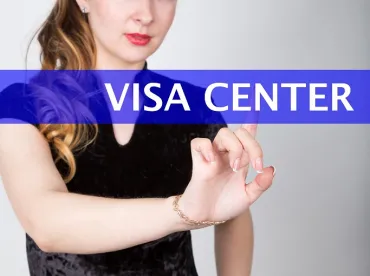The United States Department of Homeland Security (“DHS”) issued a press release on January 30, 2019, announcing revisions to the H1-B visa program, which were made in direct response to President Trump’s April 17, 2017 “Buy American and Hire American”Executive Order (the “Order”). As we discussed in our previous blog post about the then-proposed changes, the final rule includes swapping the order of case selection under the H-1B “lottery” and implementation of a new electronic case registration and selection system, among other technical changes.
The Order, which sought, in part, to maximize the hiring of American workers, directed DHS and other relevant agencies to ensure that US immigration programs “protect the interests of United States workers in the administration of our immigration system, including through the prevention of fraud or abuse.” It specifically instructed DHS to review the H-1B visa program to “ensure [they] are awarded to the most-skilled or highest-paid petition beneficiaries.” The H-1B visa is the workhorse among U.S. high-skilled visas, allowing American companies to hire temporary, foreign workers in a “specialty occupation” that requires at least a related bachelor’s degree (or its equivalent). Specialty occupations are found in many fields, including medicine, law, research, and computer science, among others. Under US law, H-1B visas are subject to an annual cap of 65,000 (“Regular Cap”), with an additional 20,000 available for workers with a masters or higher degree from a US university (“Master Cap”).
Master Cap Selection Changes
Under the current system, H-1B petitions are accepted starting on April 1, for the fiscal year that begins October 1 of the same calendar year. In recent years, so many H-1B applications have been received that a lottery system was required to choose which petitions would be adjudicated. Once DHS receives enough petitions to reach the H-1B caps, usually only 3-4 days after April 1, it conducts a lottery to select applicants for adjudication under the cap amounts. Until now, H-1B petitioners were first selected against Masters Cap, and in years when such petitioners exceeded the 20,000 cap, those not selected within this exemption were then placed into the general application pool for another chance of random selection.
The new rule reverses the process. Now, DHS will select first conduct the Regular Cap lottery of 65,0000 visas for all petitions – including those that also qualify for the Master Cap. Once the Regular Cap is exhausted, those Master Cap petitions not already selected will be run through the Master Cap lottery of 20,000 visas. DHS reports that this reversal will increase the number of H-1Bs awarded to those with at least a US Master’s degree by as much as 16%. The rule changes will become effective April 1, 2019, and the new selection process will begin in FY 2020 (for applications filed beginning in April 2019).
Electronic Registration System Placed on Hold
The new rule also introduce an electronic registration system for H-1B petitioners that DHS believes will enhance efficiency and cost effectiveness of the visa application process, resulting in a savings for employers and the agency. Whereas completed petitions are currently filed on April 1, the new electronic system will allow employers to pre-register during a set period, and provide information on their proposed H-1B filings for the year. The proposed H-1B petitions for each registered company will then be run through the new two-step lottery process. Selected registrants will subsequently prepare and file their H-1B petitions and pay the related fees.
Concerns have been raised that the new registration process will allow frivolous or non-meritorious registrants to hold places in the H-1B cap lottery. DHS responded that it has taken steps to prevent this from happening by requiring all registrants to complete an attestation designed to “ensure that each registration is connected with a bona fide job offer and, if selected, will result in the filing of an H-1B petition.” DHS has also suspended the use of the registration system for FY 2020, in order to allow further testing of the system before it becomes mandatory. DHS will publish notice at least 30 days in advance of the commencement of the initial electronic registration period, but it is expected to be available for the April 2020 filings (FY 2021).





 />i
/>i

